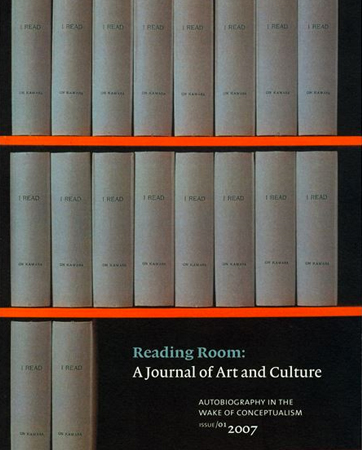

In the 1960s and 1970s the idea of art as a mode of self-expression was categorically disavowed. Before conceptual art, autobiography in art was largely to do with expressing the artist's inner life, but conceptual artists were more concerned with measuring life's outward manifestations. On Kawara is an obvious example. Every day he recorded the time he got up, where he went, who he met, and noted that he was still alive, but left psychology out of the picture. Where the old romantic idea of an expressive-confessional art persisted, its production and reception were often inflected by psychoanalytic theory, as in the work of Louise Bourgeois. Lacan's idea that the unconscious was structured like a language became hugely influential. These developments brought new opportunities and problems for autobiography.
Editors: Christina Barton, Wystan Curnow, Robert Leonard.
publication
publication
publication
publication
publication
publication